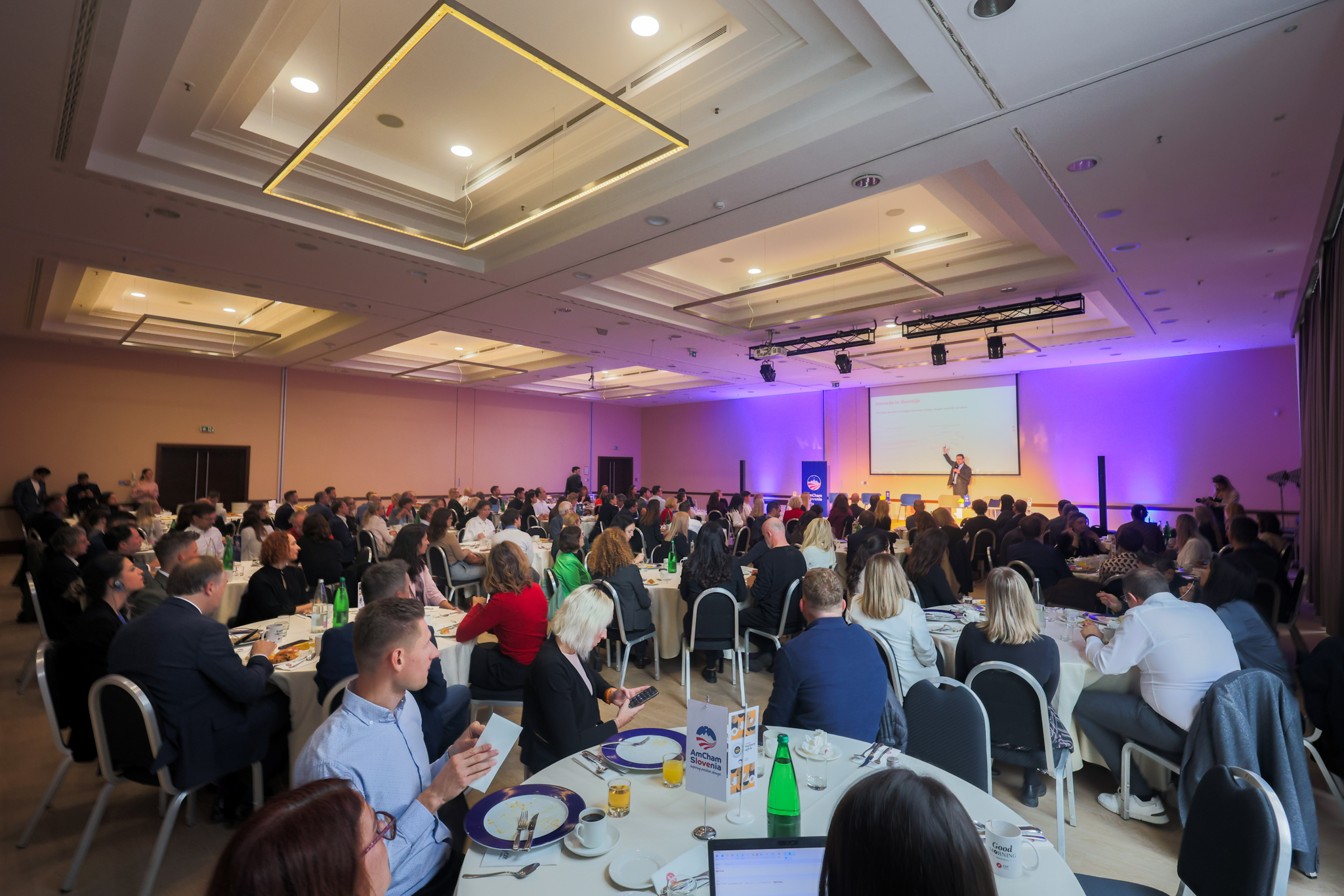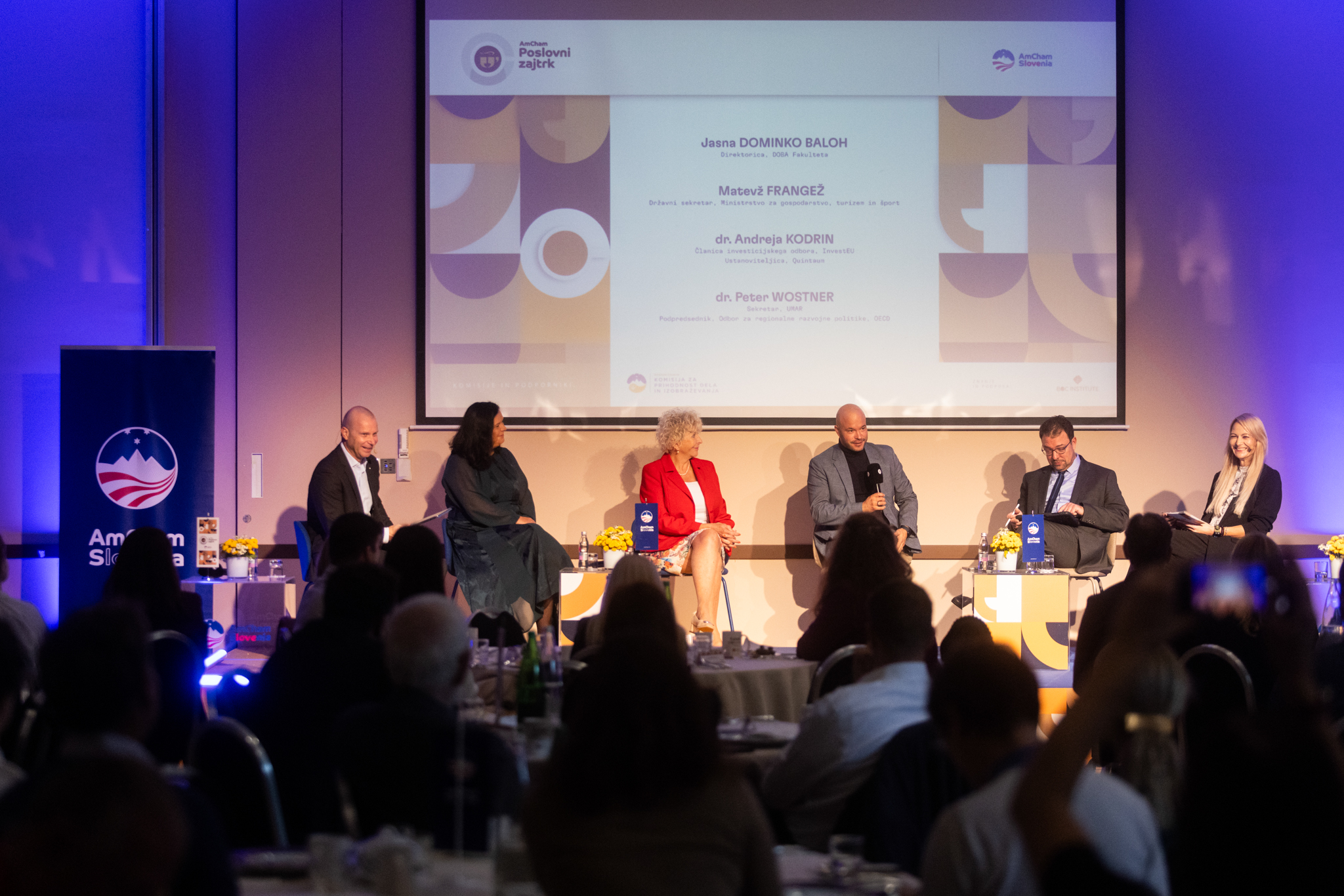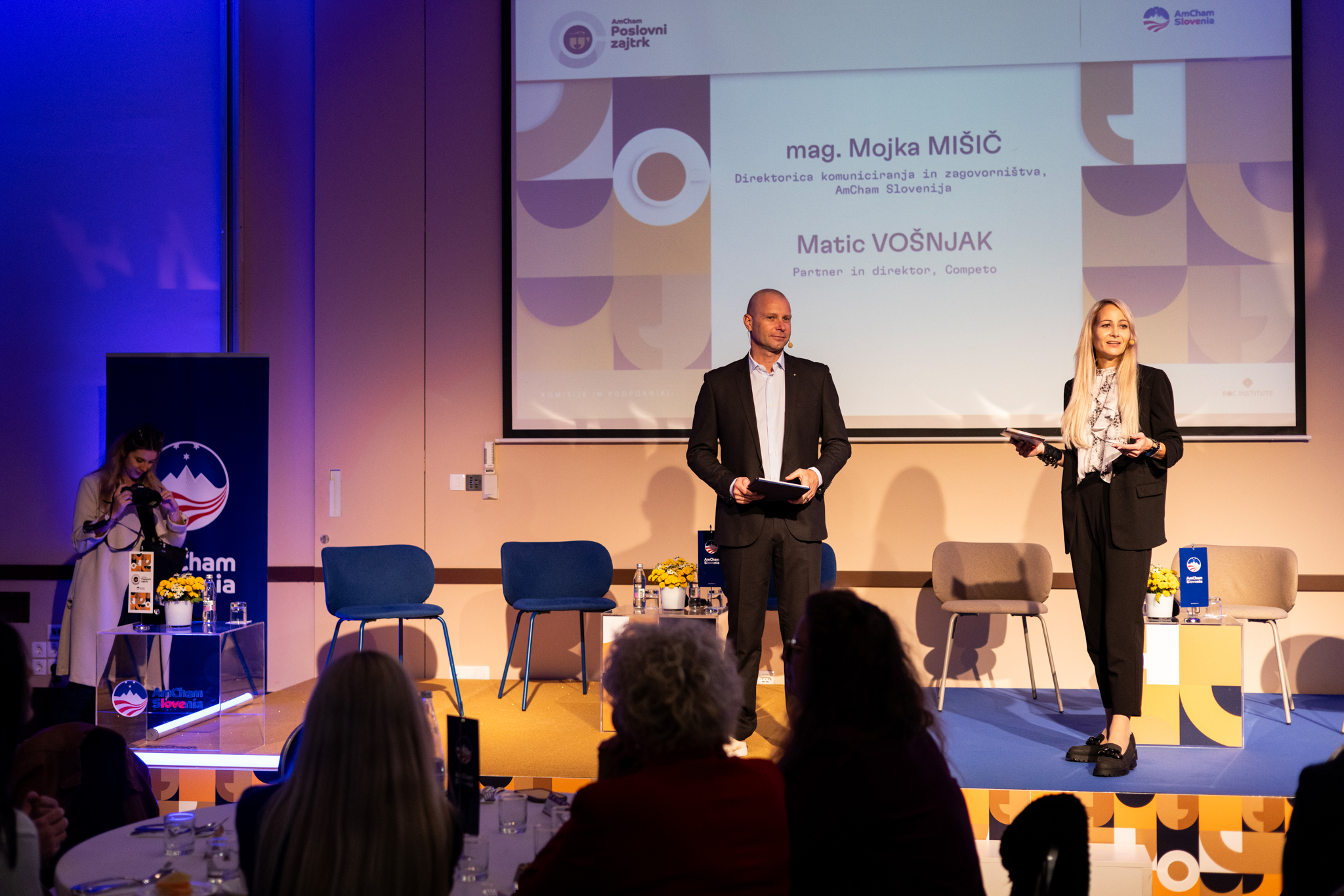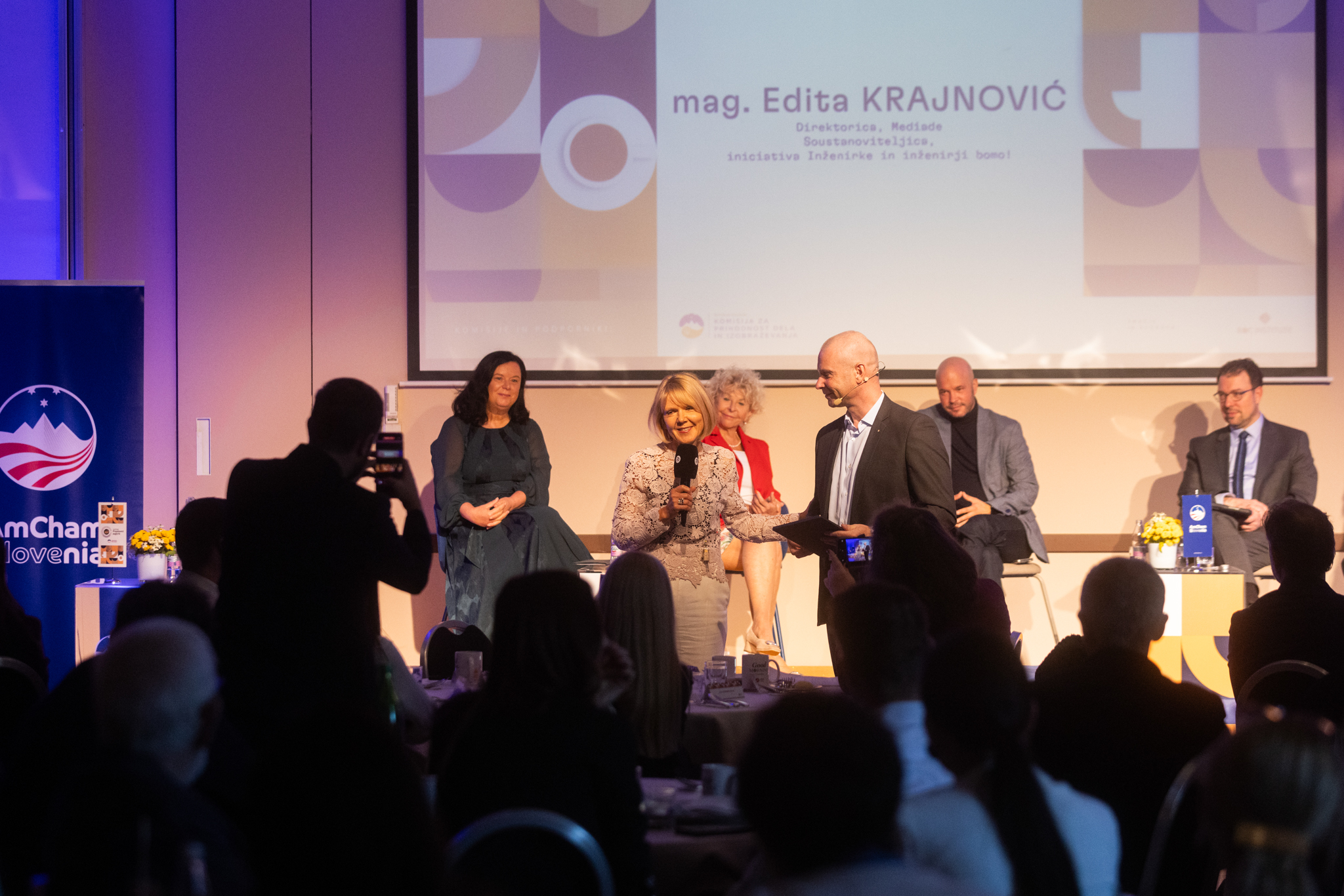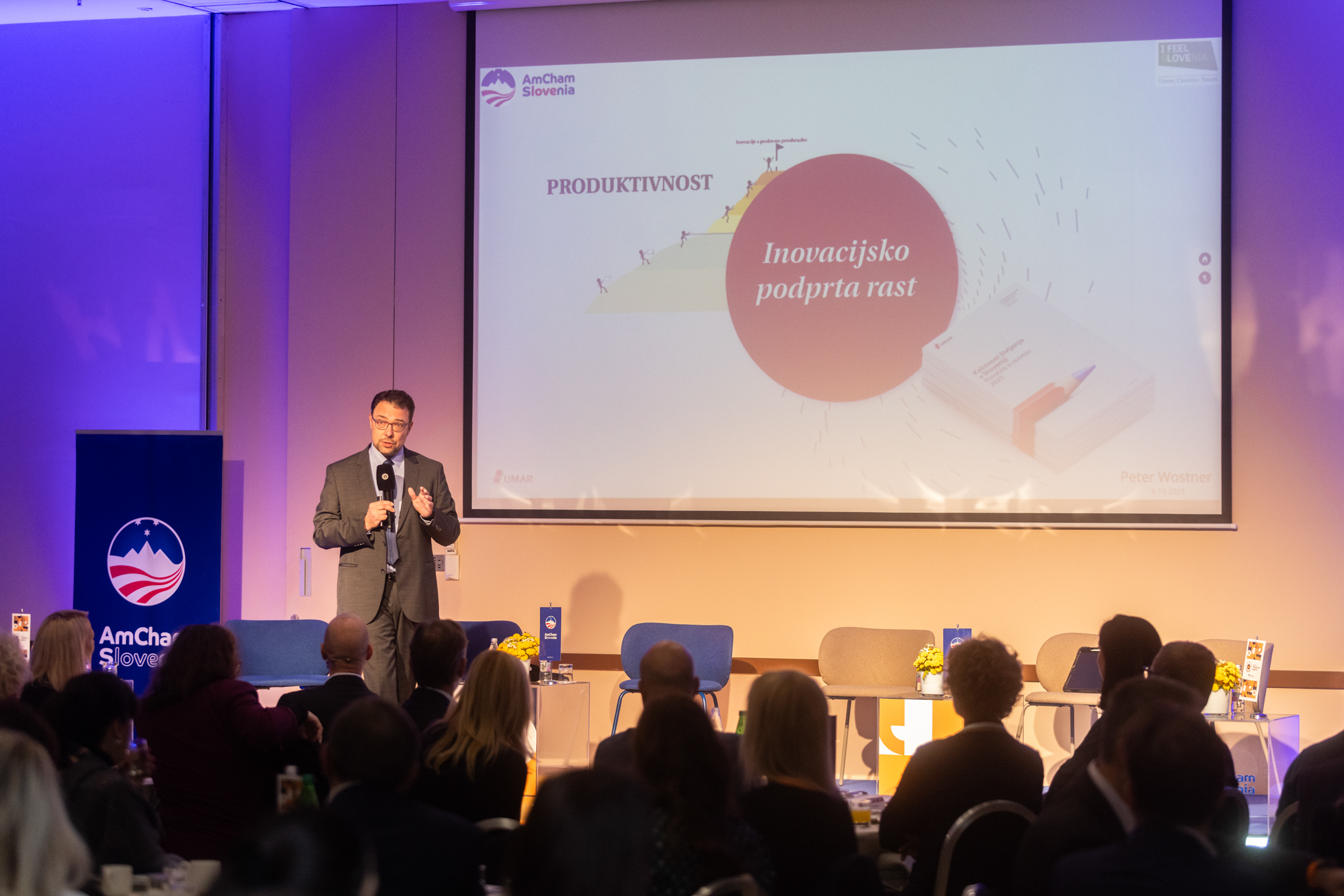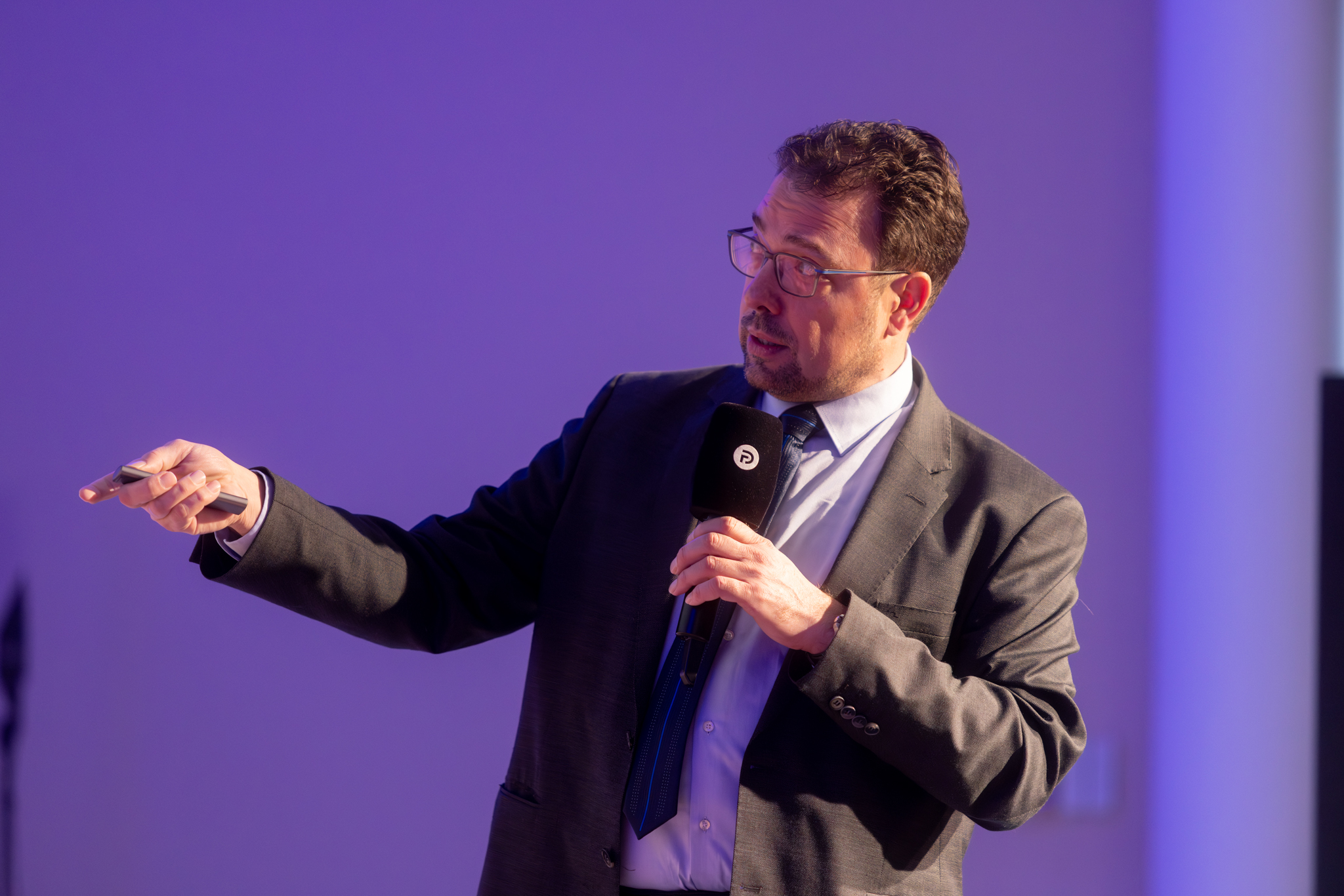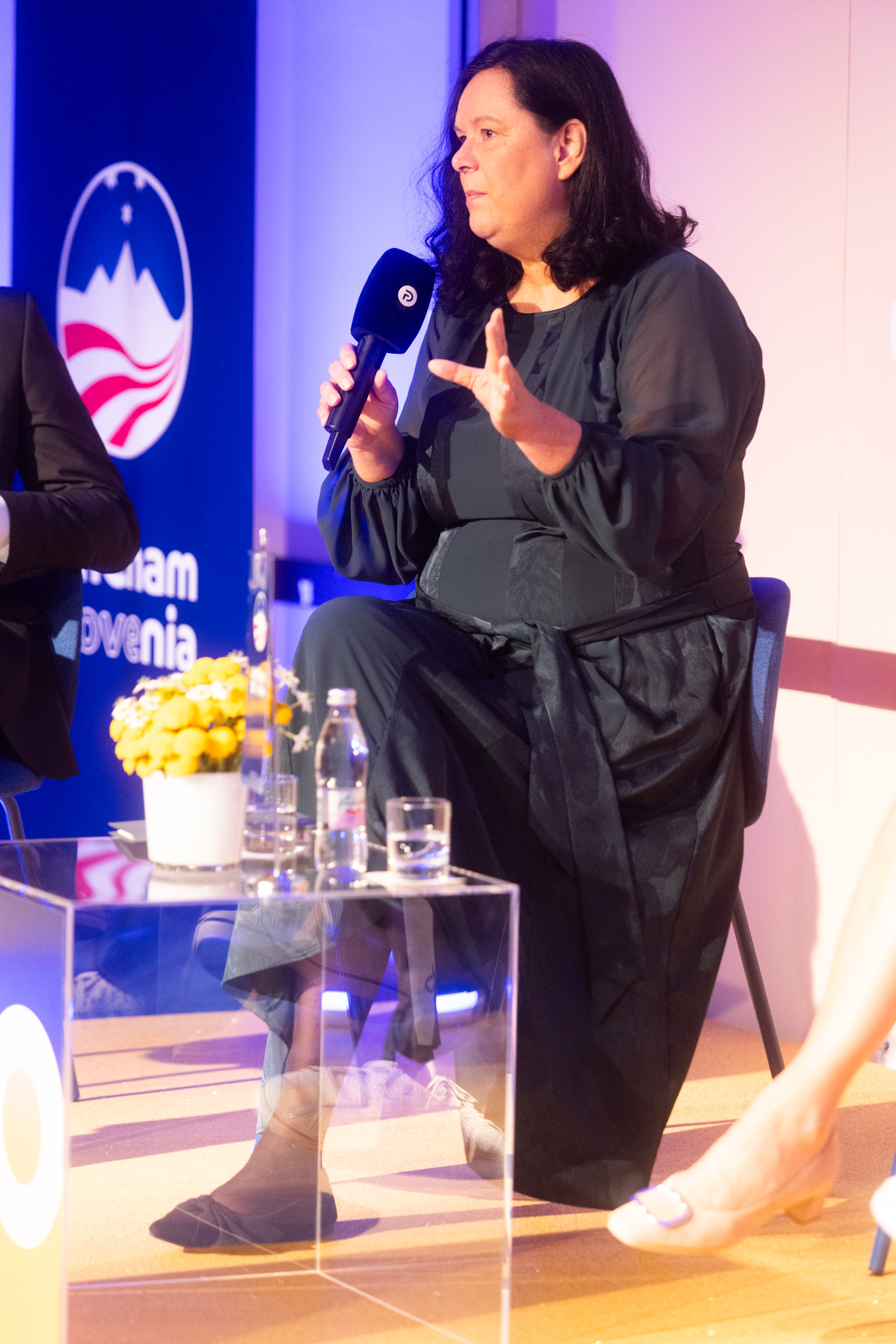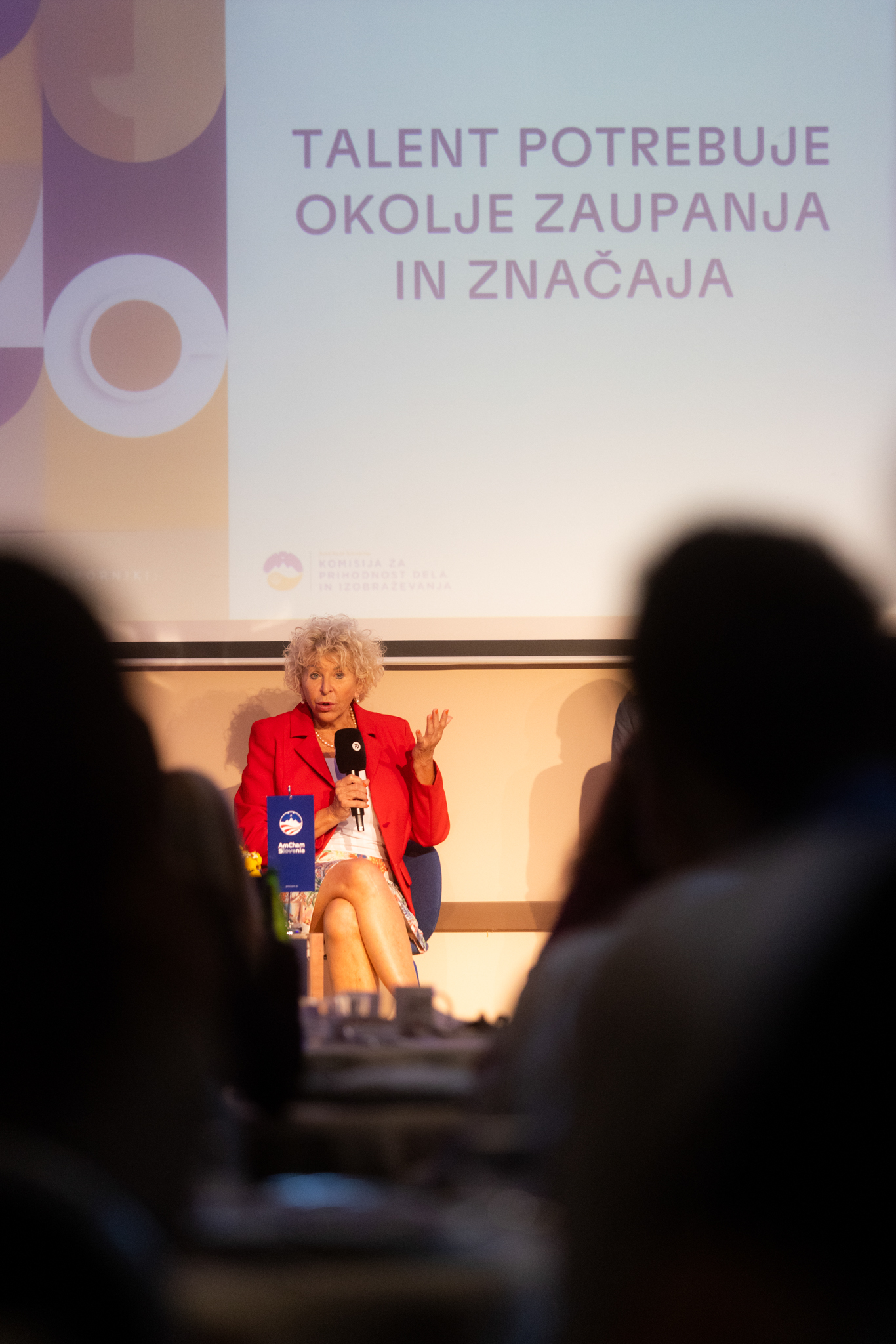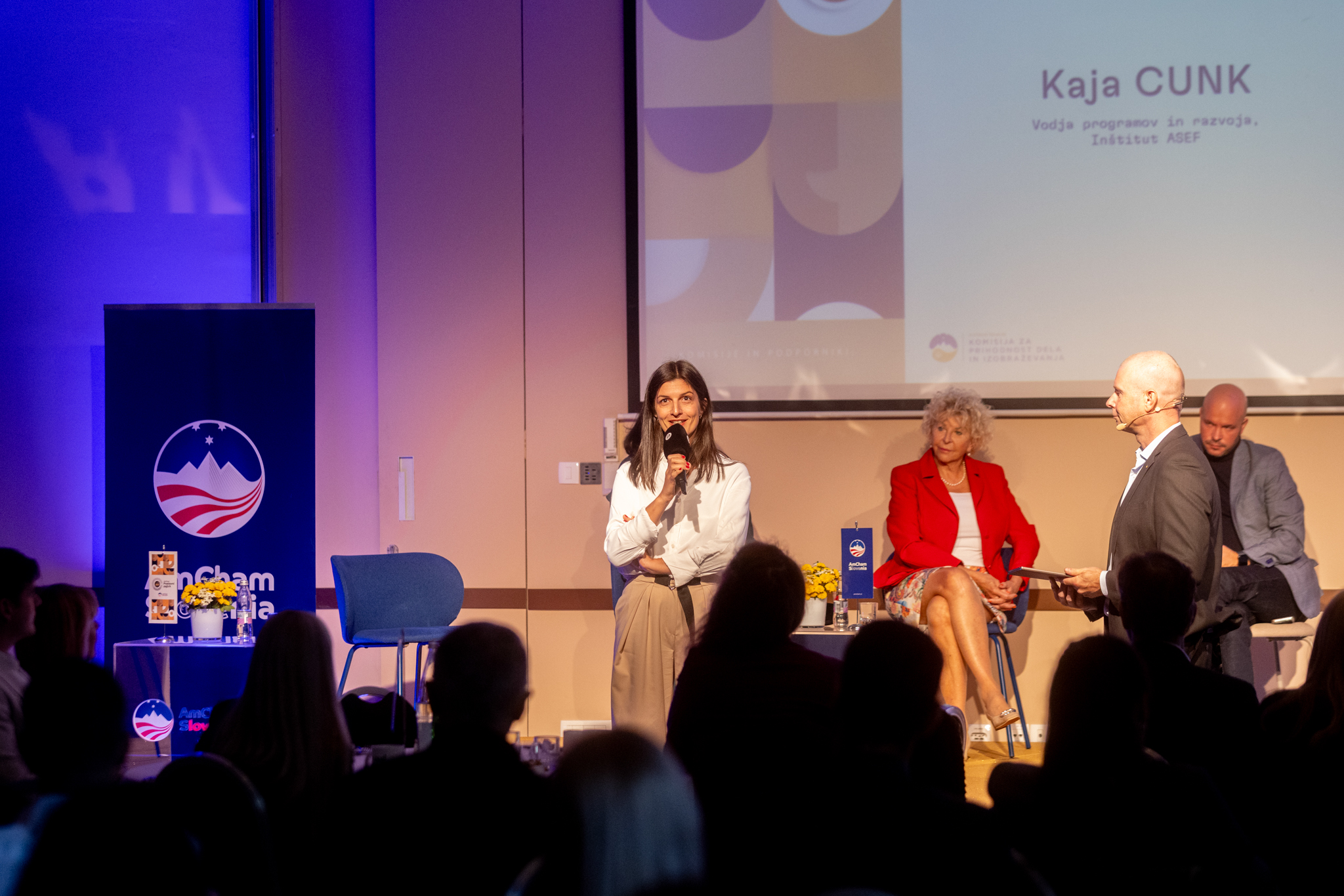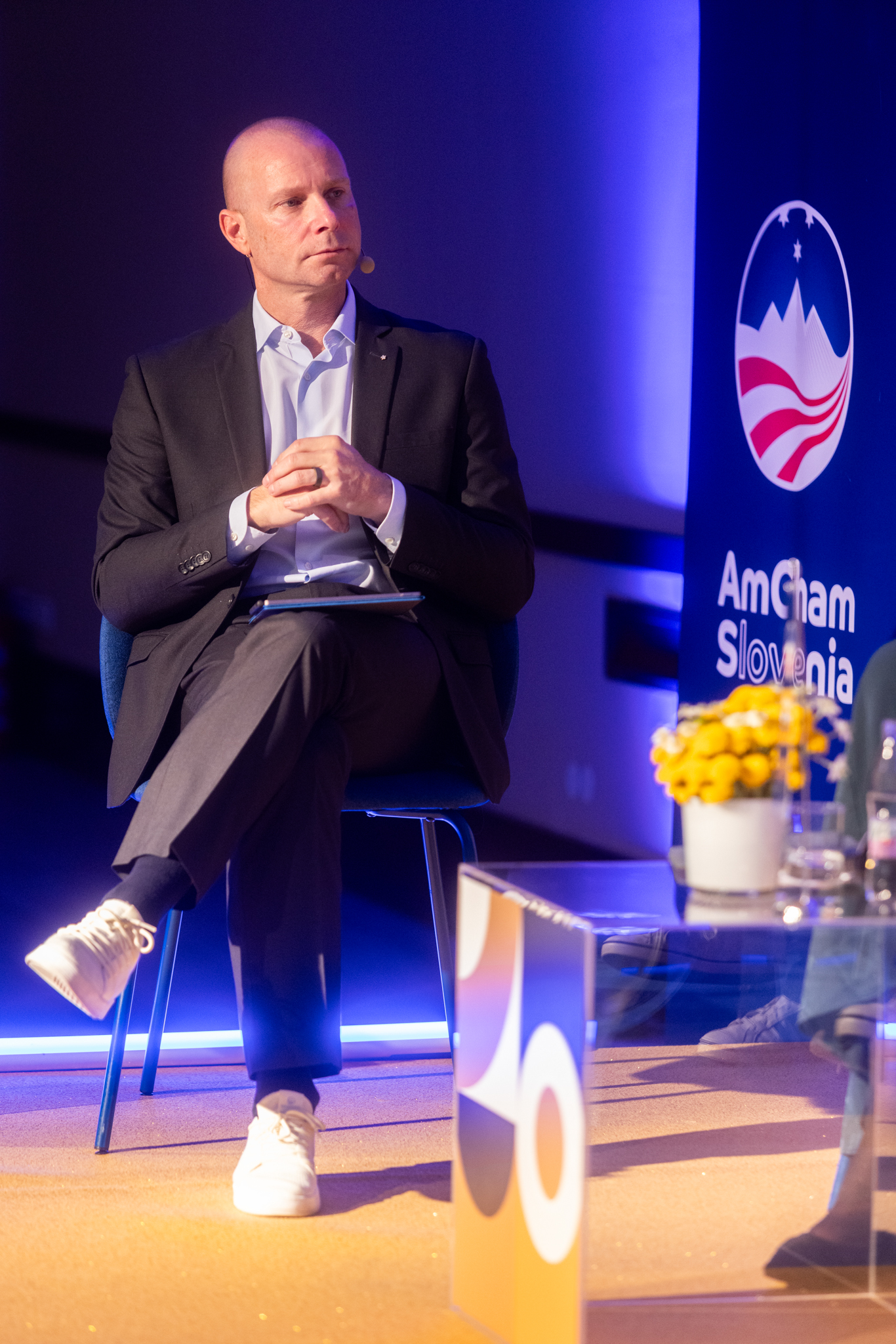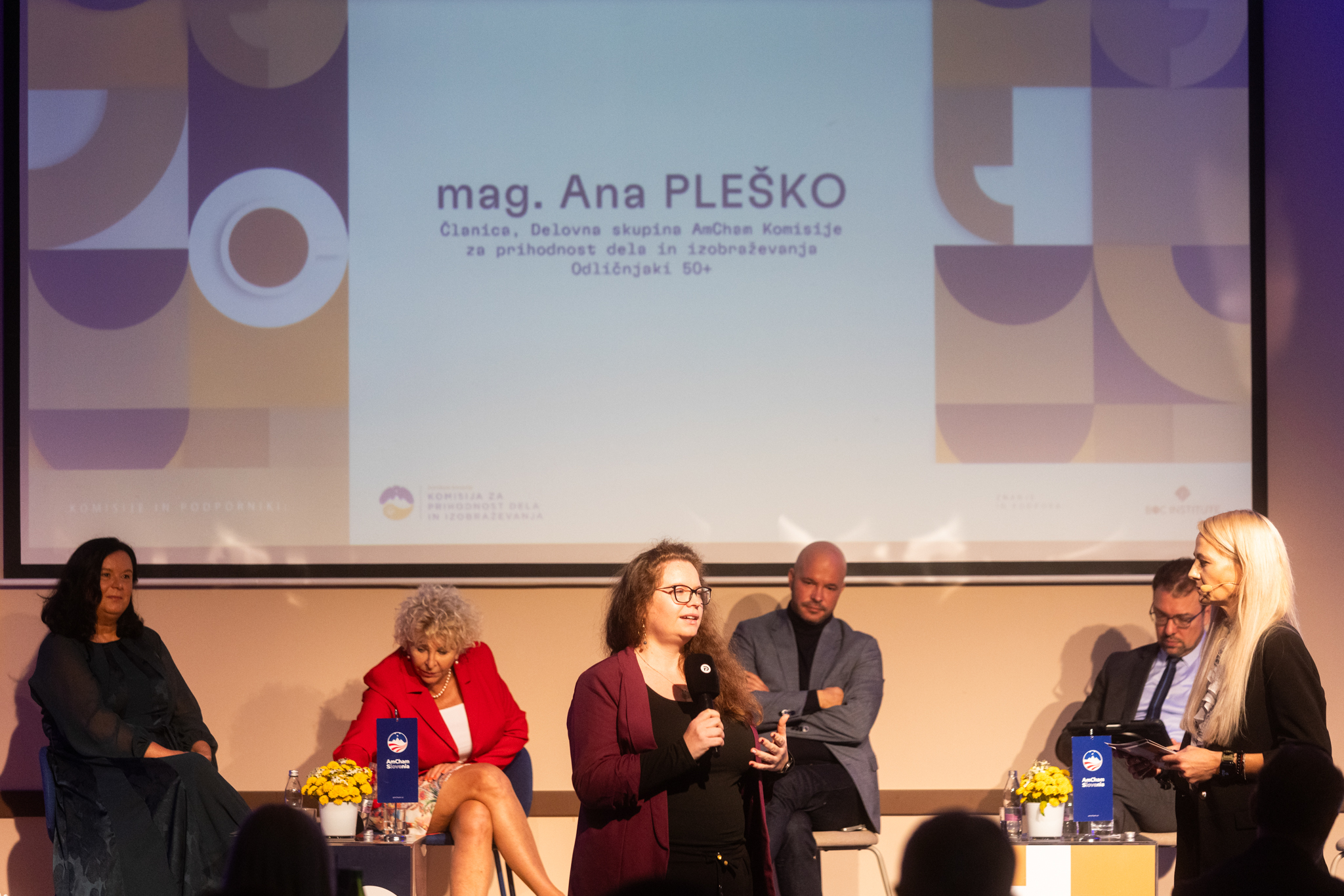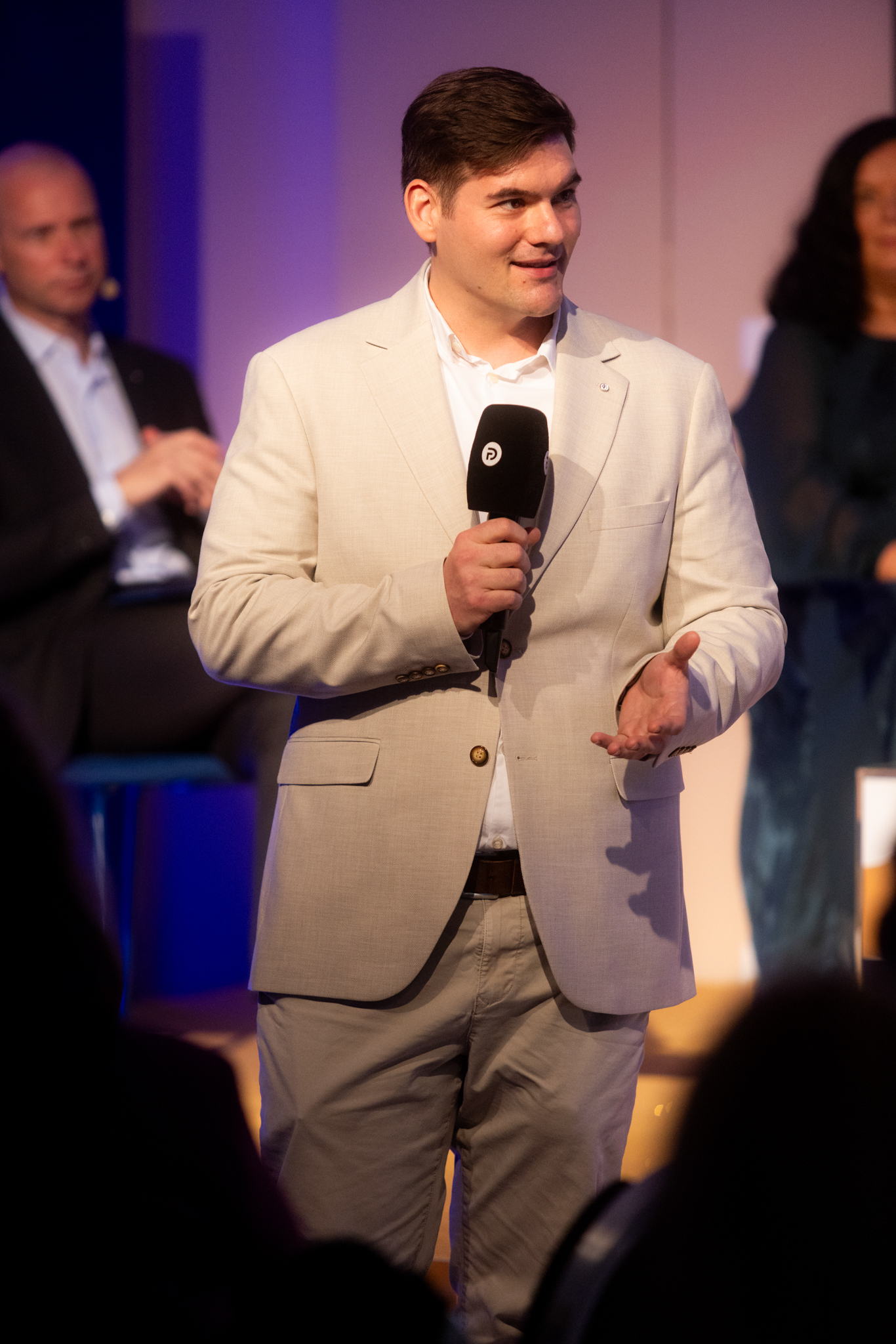AmCham Business Breakfast
Slovenia has heart, mind, and will. But the key to the future has only one name: talent. At today’s AmCham Business Breakfast, we asked how to become a country where domestic talents see their future — and foreign ones see their opportunity. We spoke about young talents driven by curiosity, energy, and new ideas, and about experienced professionals who bring wisdom, knowledge, and stability. Above all, we explored the power that emerges when these worlds connect. The speakers’ joint conclusion was clear: Slovenia will be as strong as its ability to recognize, develop, and retain its talent — a shared responsibility of society as a whole.
Talent as a Strategic Choice
🎤 Peter Wostner, PhD, (Institute for Macroeconomic Analysis and Development (UMAR) , OECD – OCDE Regional Development Policy Committee), set the discussion in a macroeconomic framework, emphasizing that Slovenia must shift to innovation-driven growth to improve quality of life: “If we want to improve the quality of life, productivity is the key. We need to move from investment-driven growth to innovation-driven growth — to invest not only in physical capital but also in innovation and people.” Slovenia is moving up the global rankings, but slowly. The decline in competitiveness is not due to a lack of investment but a decline in trust — including trust in the quality of public systems: “We’re losing 4,500 people from the labor market every year. Meanwhile, the needs of an aging society are increasing. We must embed into our mindset that every individual counts. We need to create a system where everyone can develop their talent and where those who leave will want to come back.”
Matevž Frangež, State Secretary, Ministry of the Economy, Tourism and Sport, highlighted that we are living through one of the greatest economic transformations in history: “These changes should not be seen as a threat but as an accelerator. Slovenia needs a consensus on what kind of community it wants to be in the future — and how fast we can transform into a society of innovation.”
Talent Needs an Environment of Trust and Character
Andreja Kodrin, PhD (InvestEU and Founder, Quintaum), emphasized that people are not “soft capital” but rather hard capital. She noted that although we have a “valuable ingredient” — talent — we are unfortunately producing only a “semi-finished product.” She pointed out that while relationships in Slovenian companies are generally good, the culture of feedback is still lacking: “Trust is the key ingredient that leads to psychological safety, innovation, and growth mindset — yet in our society, it has fallen to one third,” she warned.
Jasna Dominko Baloh, Director, DOBA University of Applied Sciences, stressed that education is the foundation. She pointed out that Slovenia still lacks a developed system for talent recognition and that schools must teach responsibility alongside freedom: “3–5% of children have special abilities. Developed countries have systems for talent recognition. In Slovenia, we have many competitions where children achieve excellent results, but no systematic approach to identifying talent. Talent is not always diligence — yet our scholarships still reward only good grades.”
Bojana Selinšek, MSc, VTIS Association, revealed that career and academic reasons are the number one cause for Slovenians leaving abroad. Those considering returning mainly want their perspectives to be valued and to find a more international and inclusive environment at home: “More than 70% of our members have a foreign partner. If we want them to return, we must create an international environment where their partners also see opportunities.” Kaja Cunk, ASEF Institute, added that ASEF focuses on actively engaging Slovenians abroad, building bridges between Slovenia and the world: “Our goal is to turn ‘brain drain’ into ‘brain circulation’ — establishing long-term connections where mentors are eager to give back their knowledge and experience. But with the desire comes responsibility — to work with talents in a way that makes them want to keep collaborating with us.”
The Synergy of Generations
Slovenia faces significant demographic changes — projections by the OECD and the United Nations show that by 2050, the share of residents over 65 will exceed 34%, placing Slovenia among the oldest nations in the world. Ana Pleško, MSc, Member of the Champions 50+ Working Group of the AmCham Future of Work and Education Committee, highlighted that companies must be informed about the added value of older employees to overcome stereotypes and tap into their potential: “It’s time to stop talking about age and start talking about potential — to realize that every individual counts.” All the related challenges and proposed solutions are addressed in the AmCham Working Group document Champions 50+, available [HERE].
Matija Prijatelj, Head of the AmCham youth think-tank Snežna kepa, which focuses on shaping Slovenia as a talent-friendly country, stressed that talent is a strategic choice that requires the right conditions: “Following the principle ‘first the stable, then the cow,’ we must first create an environment in which talents can truly develop.”
Talent as a Shared Responsibility
The conclusion of the discussion captured the spirit of the entire event: talent development is a shared responsibility of the state, business sector, education system, and the individual. Edita Krajnović, MSc, Director of Mediade and Co-founder of the Let’s Be Engineers! initiative, summarized it powerfully: “Four out of five companies in Europe are struggling to attract STEM talents — and those talents will go where they have more opportunities. No one is born a talent; we are all born with potential. The individual’s task is to train and persist — that’s the necessary condition. But the sufficient condition is support — from parents, mentors, and society. If my voice stands for anything, it stands for a new understanding of solidarity. New solidarity doesn’t just mean helping someone in distress — it means helping someone succeed.”
